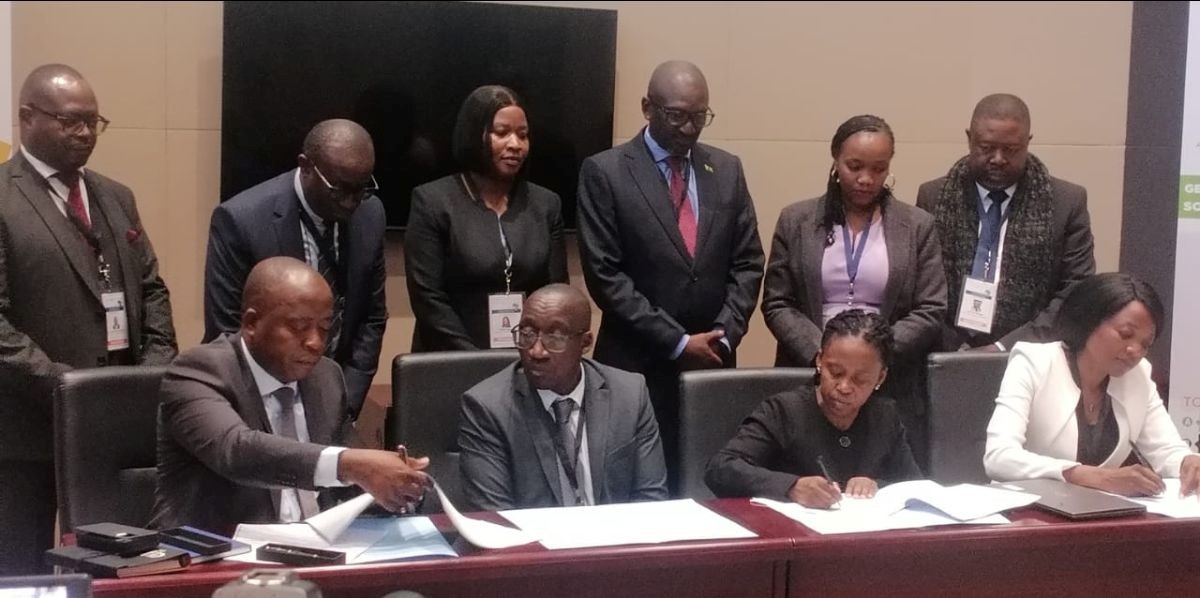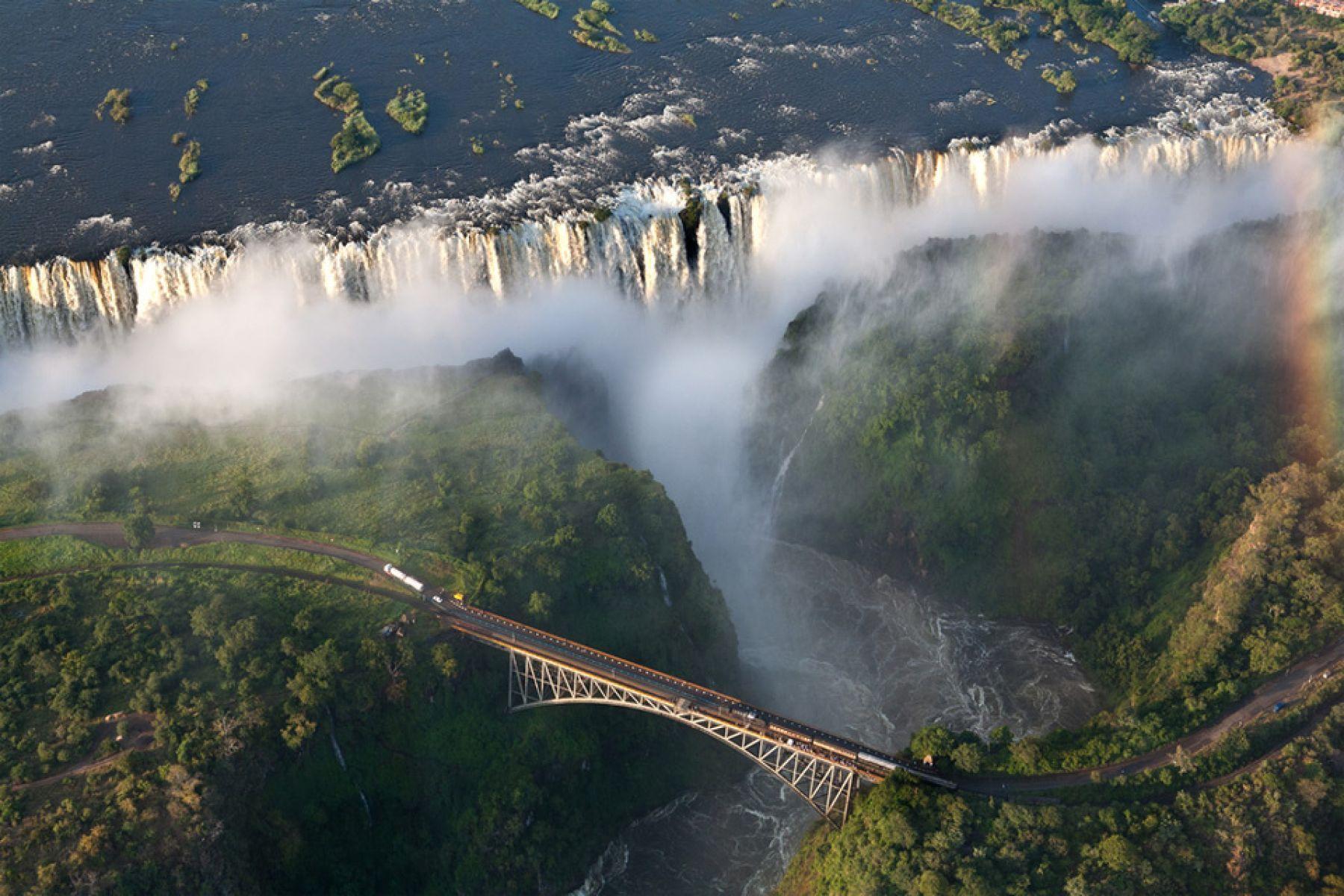This year's symposium sub-themes have been aligned to closing the water investment gap, achievement of Sustainable Development Goals (SDGs), and the SADC Water Research Agenda under the Regional Strategic Action Plan (RSAP) on Integrated Water Resources Development and Management Phase V. Discussions will focus on the following sub-themes:
- Water–Land-Energy–Agriculture NEXUS for Sustainable Development
- Innovative Approaches, Practices and Technologies for Affordable Water Supply and Sanitation Services, Water Governance and Investments for Sustainable, Equitable and Affordable Water Services
- Changing Hydro-Climatic Regimes and Planning Tools for Climate-Resilient Development Pathways
- Water, Ecosystems and the Environment
Jointly convened by the International Association of Hydrological Sciences (IAHS), the AU/NEPAD Southern African Network of Water Centres of Excellence (AU/NEPAD SANWATCE), and the Local Organising Committee led by the Ministry of Water Development and Sanitation, Republic of Zambia, the meeting aims to promote interaction among policymakers, academics, and practitioners from water and related sectors.
GWPSA 26th WaterNet/WARFSA/GWPSA Symposium
As one of the co-conveners for the symposium, GWPSA will be delivering remarks during the opening of the symposium. GWPSA will, among other activities, convene two sessions to share experiences and offer knowledge and learning exchanges under its Global Environment Facility (GEF) projects in the Cuvelai, IncoMaputo, Kunene, and Limpopo basins. Both sessions are being convened in collaboration with the Cuvelai Watercourse Commission (CUVECOM), the Incomati and Maputo Watercourse Commission (INMACOM), the Limpopo Watercourse Commission (LIMCOM), and other partners.
Session 1—Waterway Pollution: Building Blocks for a SADC Transboundary Strategy for Healthy Rivers from Source to Sea.
Session theme: Water, Ecosystems and the Environment
Date: Wednesday 29 October 2025
Time: 13:45–15:45
Venue: Meeting Space 4
Conveners
Cuvelai Watercourse Commission (CUVECOM), Permanent Joint Technical Commission (PJTC), Limpopo Watercourse Commission (LIMCOM) supported by UNDP-GEF, Global Water Partnership Southern Africa (GWPSA), Incomati and Maputo Watercourse Commission (INMACOM).
Session Summary
The session seeks to define collaborative partnership with SADC River Basin Organisations (RBOs), riparian states, and their research and development and cooperation partners, focusing on solutions and financing pathways to inform a practical regional strategy for transboundary rivers, linked to land management and marine ecosystems.
Most rivers, lakes, wetlands, groundwater systems, and coastal ecosystems in southern Africa are increasingly threatened by pollution from multiple sources, including industrial effluents, mining tailings, untreated wastewater, agricultural runoff, and diffuse land-based pollutants linked to land degradation. Groundwater, which sustains millions of people across the region for domestic use, irrigation, and ecosystem baseflows, is particularly vulnerable to nitrate leaching, pesticide residues, and industrial seepage. Once contaminated, aquifers are costly and often impossible to restore, making prevention and monitoring critical.
Click here to register for the session.
Session 2: Bridging Waters, Bridging Knowledge – unlocking regional water intelligence towards Integrated Information and Knowledge Management Systems (IKMS) for Source-to-Sea cooperation in the SADC Region.
Session theme: Changing Hydro-Climatic Regimes and Planning Tools for Climate Resilient Development Pathways
Date: Thursday, 30 October 2025
Time: 13:45–15:45
Venue: Meeting Space 4
Session summary
The session will focus on transitioning from concept to application, ensuring IKMS serve practical planning, governance, and resilience functions.
Through the session, participants will co-create a strategic pathway with clear, Member State-focused priorities for transforming fragmented information islands, which are RBO Secretariat and Commissions-focused, into a regional water knowledge network that:
- Establishes a shared technical and strategic vision for a SADC-wide IKMS that supports Member States first, with RBOs as facilitators.
- Is widely used regularly by Member States to support from strategic through to operational purposes.
- Defines priority action areas for interoperability: common data protocols, shared architectures, and practical capacity-building.
- Strengthens application of IKMS to real-world outcomes: disaster preparedness, hazard impact reduction, land-use planning, and Source-to-Sea management.
- Provides linkages between basin-level and regional systems, ensuring national needs drive regional strategy.
- Drafts a framework for multi-stakeholder partnerships, identifying champions and commitments to operationalise the IKMS agenda.
Across SADC, countries, River Basin Organisations (RBOs) and partners have invested heavily in developing Decision Support Systems (DSS), Information Management Systems (IMS), Early Warning Systems (EWS), and data repositories – collectively referred to as Information and Knowledge Management Systems (IKMS). These have created a mosaic of valuable but often fragmented “information islands.” While many tools sit within the technical remit of the RBOs, their true usefulness depends on how effectively they serve Member States and their institutions in real-world applications such as land use planning, Source-to-Sea application, hazard preparedness, pollution response, and flow regulation.
Click here to register for the session.
Showcasing GWPSA’s Success Stories
GWPSA engagement at the symposium will also include an exhibition, showcasing some of the knowledge and communication products across its various projects and initiatives under the following programmes:
- Continental Africa Water Investment Programme (AIP)
- The AIP Transboundary PIDA Water Investments Support Programme
- AIP Water, Climate Development and Gender Programme
- The AIP SDG Investments Support Programme
This annual event, held since 2000, promotes collaboration among policymakers, academics, and practitioners, identifying regional priorities and gaps. With its emphasis on knowledge integration, the symposium is poised to drive meaningful progress in water resources management.
GWPSA has been supporting the convening of the annual symposia for many years as part of operationalising a Memorandum of Agreement (MoA) with the WaterNet Secretariat. In May 2025 the Republic of Zambia, WaterNet, and the Global Water Partnership Southern Africa (GWPSA) signed an MoA to host the 26th edition of the annual symposia.

The MoA for the convening of the 26th WaterNet/WARFSA/GWPSA Symposium was signed by Eng. Romas Kamanga (second from left), Permanent Secretary of Zambia’s Ministry of Water Development and Sanitation; Prof. Nnenesi Kgabi (second from right), Board Chair of WaterNet Trust; and Dr. Loreen Katiyo (extreme right), who represented Mr. Andrew Takawira, Interim Regional Executive Secretary of the Global Water Partnership, Southern Africa. Second from right is Prof Dr. Ir. Jean-Marie Kileshye Onema, Executive Director for SADC WaterNet
The symposium will also serve as a platform to identify regional issues, gaps, and priority areas that demand further research and targeted support. Special emphasis will be placed on the integration of knowledge across disciplines, with a focus on engaging scholars from both the natural and social sciences to foster holistic, evidence-based approaches to water governance and investment.
Click here for the programme for the 26th WaterNet/WARFSA/GWPSA Symposium
